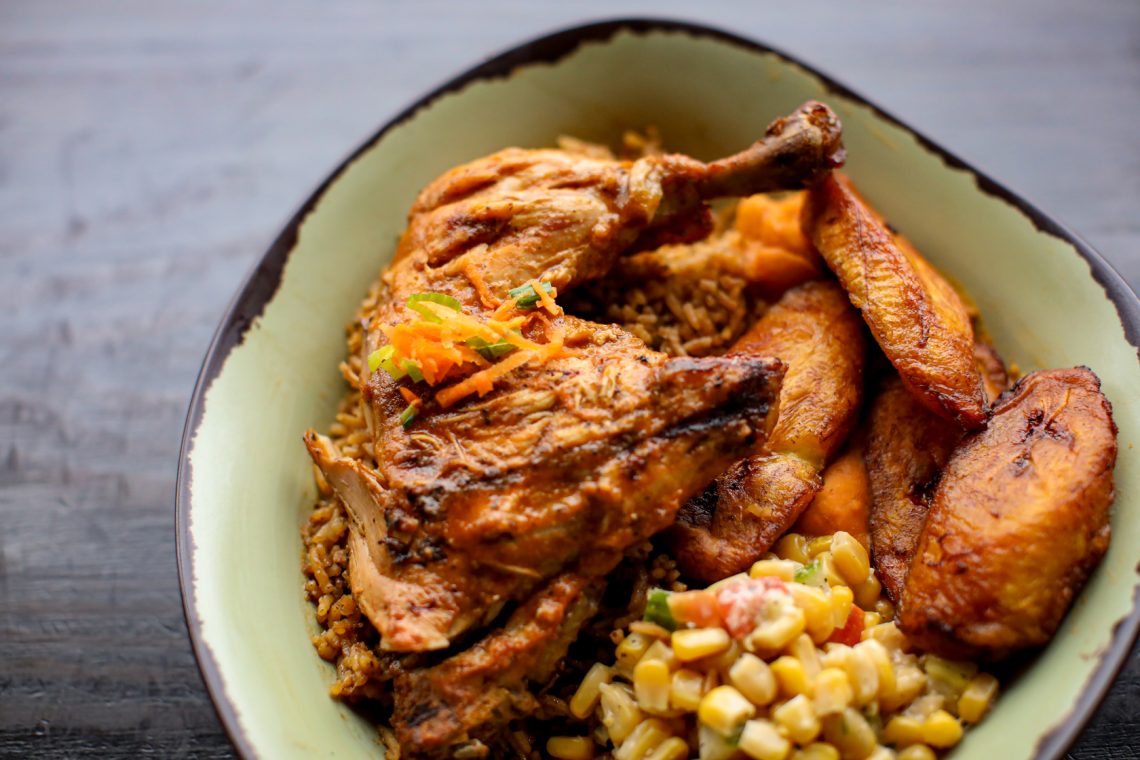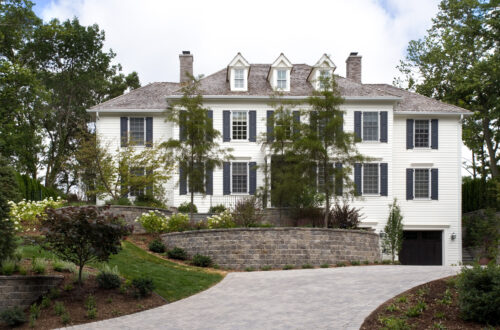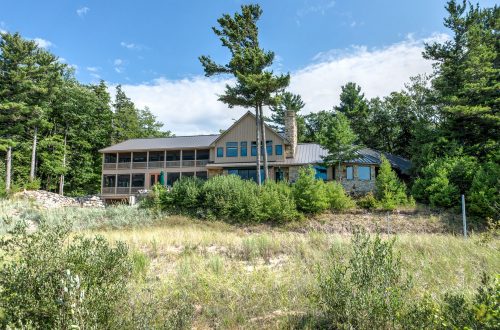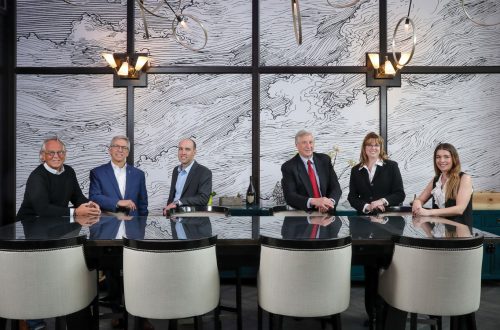For the 2024 Outstanding Restaurateur nominees, Hamissi Mamba and Nadia Nijimbere, Baobab Fare in Detroit, Michigan is more than just a restaurant. Founded by the husband-and-wife team, who are refugees from Burundi, East Africa, Baobab Fare is a celebration of vibrant flavors and simple ingredients, authentic dishes and rich culture, and a destination in which community, connection, and conversation intersect with its culinary experience.
From its location on Woodward Ave., it transports patrons to East Africa, where the Burundian landscape meets Lake Tanganyika to the west, Rwanda to the north, and Tanzania to the southeast, through curated sauces and signature dishes like Nyumbani, Intore, Samaki, Mbuzi, and Kuku—think slow-simmered beef in ripened tomato sauce, eggplant stew and flash-fried fish in tangy sauteed onions, slow-roasted goat shank, and pan-fried chicken in rich mustard-onion sauce. It is a place that also embraces Detroit as its founders’ adopted city, infusing a blend of Burundi and Detroit into the historic building in homage to the community that welcomed them roughly 10 years ago. And, as Baobab Fare is actively growing into a second location in East English Village, and expanding with its sister brands Waka and Soko, it continues to embody a passion for uplifting East African culture and other refugees, and for sharing stories.
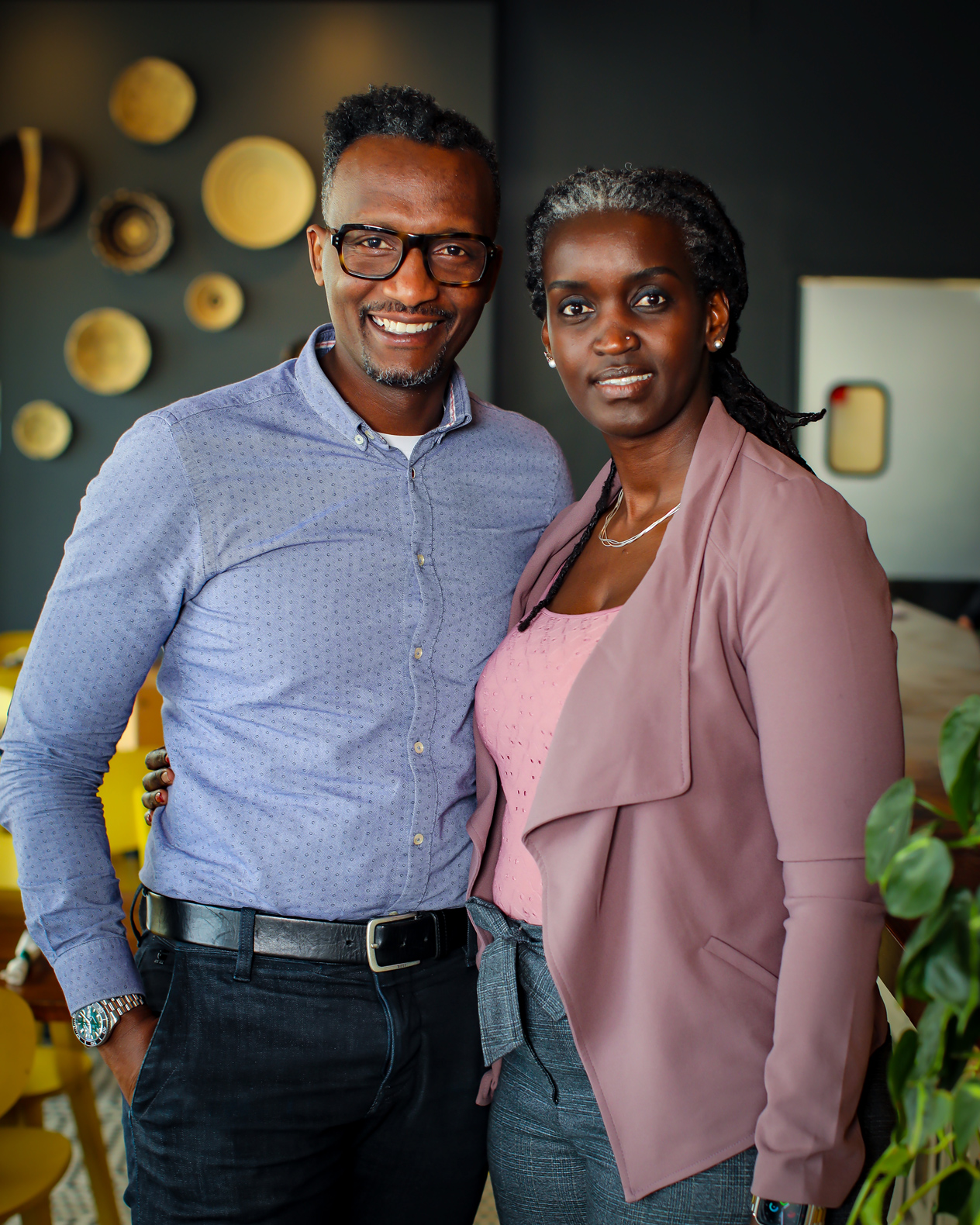
“Our story started in 2013 when Nadia, my wife, came to Detroit to seek asylum from Burundi. I tried to apply for a visa to come join her and then after a couple of months, she found out she was pregnant with twins. I wanted to be there when the kids were born, but I got denied again. In 2015, I tried for the third time, got the visa, and came to Detroit to join her and the girls, who were two-years-old at the time,” said Hamissi Mamba, co-owner of Baobab Fare.
“I didn’t speak English at the time, and it was a very challenging time for asylum-seekers in the U.S., because the immigration policies were changing a lot. There was a chance we could be deported, but because our kids were American, the scenario would have been for them to stay here. We couldn’t afford to be separated as a family anymore, but in the meantime our case was already in immigration and that same year we were called to defend it in Chicago. We won it, have asylum, and said now that this is home, why not try to open a restaurant that could not only tell our story, but also be thankful for this beautiful city and country that is giving us all these opportunities?” Mamba added.
For Nijimbere, Freedom House Detroit, a nonprofit organization and full-service provider for those seeking humanitarian protection in the United States and Canada, became a temporary place to call home when she first arrived more than 10 years ago. The organization offers services like community housing, legal aid, and access to medical and mental health care, to name a few, and empowers asylum seekers on their journey. It was while living at Freedom House Detroit, after Mamba joined Nijimbere, that the husband-and-wife team envisioned what would ultimately become Baobab Fare, Waka, and Soko, leveraging food and culture as a means to provide as a safe space for immigrants and connect with the local community. The couple not only continues to partner with Freedom House Detroit to hire recent refugees and asylum seekers, fostering an inclusive community, but also actively engages with the local Detroit community, such as when they fed frontline workers during the pandemic.
“The goal was to open up more about who we are and to tell people the stories—our story, the Burundian story, the refugee story, stories of resilience—and to make sure we give opportunities for other immigrants and refugees. It’s not easy to get a job, the culture is different, so we hire them and we are proud to say that we have more than 10 nationalities on staff. It was not just a restaurant, it was also to tell this story, our story, the struggle, and it was a long journey. But we have an amazing ecosystem in Detroit,” Mamba said.
“When COVID happened, everything was in pause and we kept pushing the opening date back. We didn’t know who was going to come, because at that time, it was only 25 percent capacity due to COVID restrictions, but we opened in February 2021 and the people were so supportive,” Mamba added.
By the time Baobab Fare officially celebrated its grand opening in 2021, that ecosystem of support included grant funding and other assistance from organizations and programs like Hatch Detroit Midtown Detroit, Inc.; ProsperUs Detroit, an organization partnering with entrepreneurs and community connectors to help support business launch, growth, and sustainability; and Motor City Match, a City of Detroit, Detroit Economic Growth Corporation, the Economic Corporation of the City of Detroit, and the U.S. Department of Housing and Urban Development partnership. And then, what had initially begun as local street pop-ups, quickly developed into a brick-and-mortar destination that brought East Africa to the corner of Woodward Ave. and East Grand Boulevard.
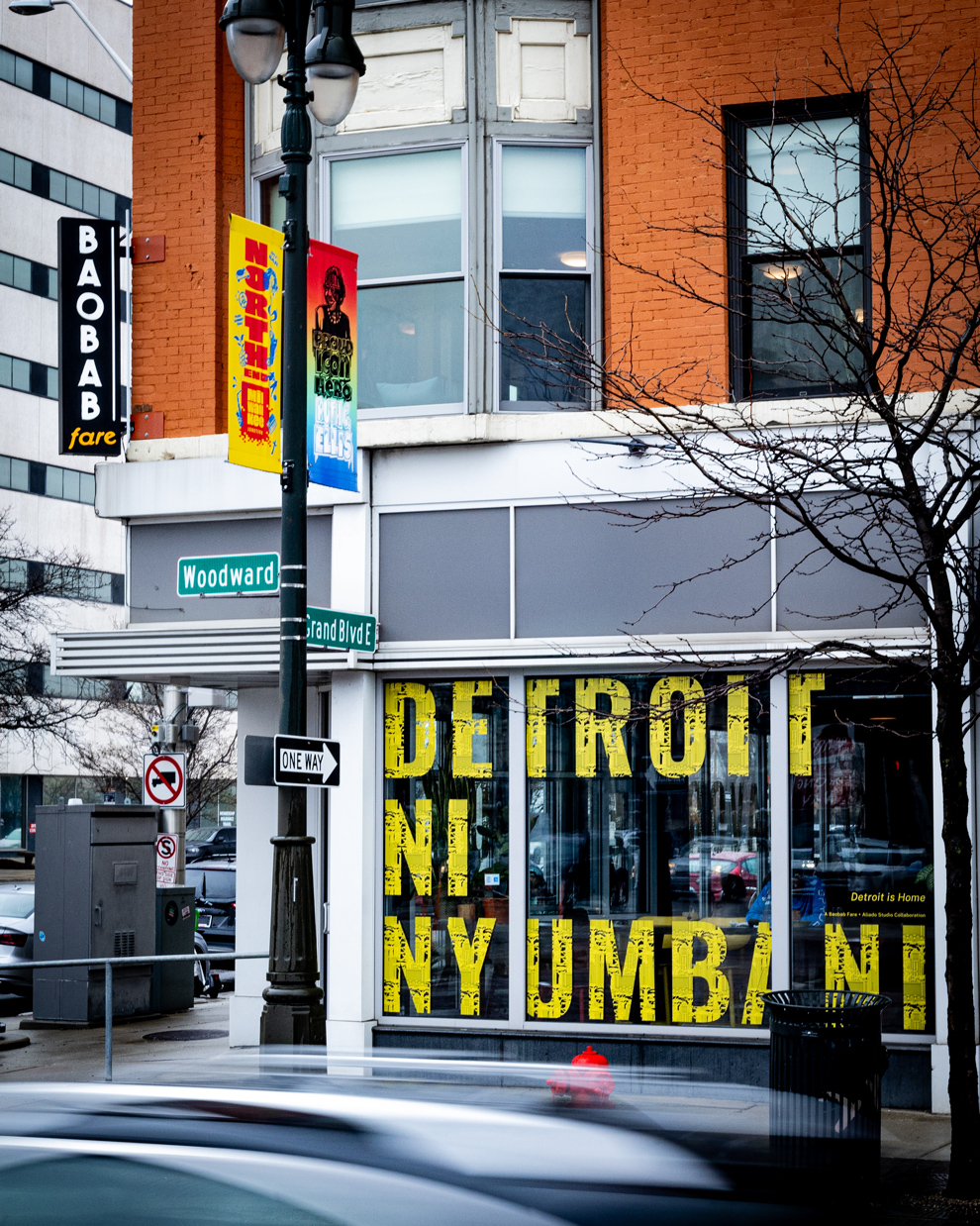
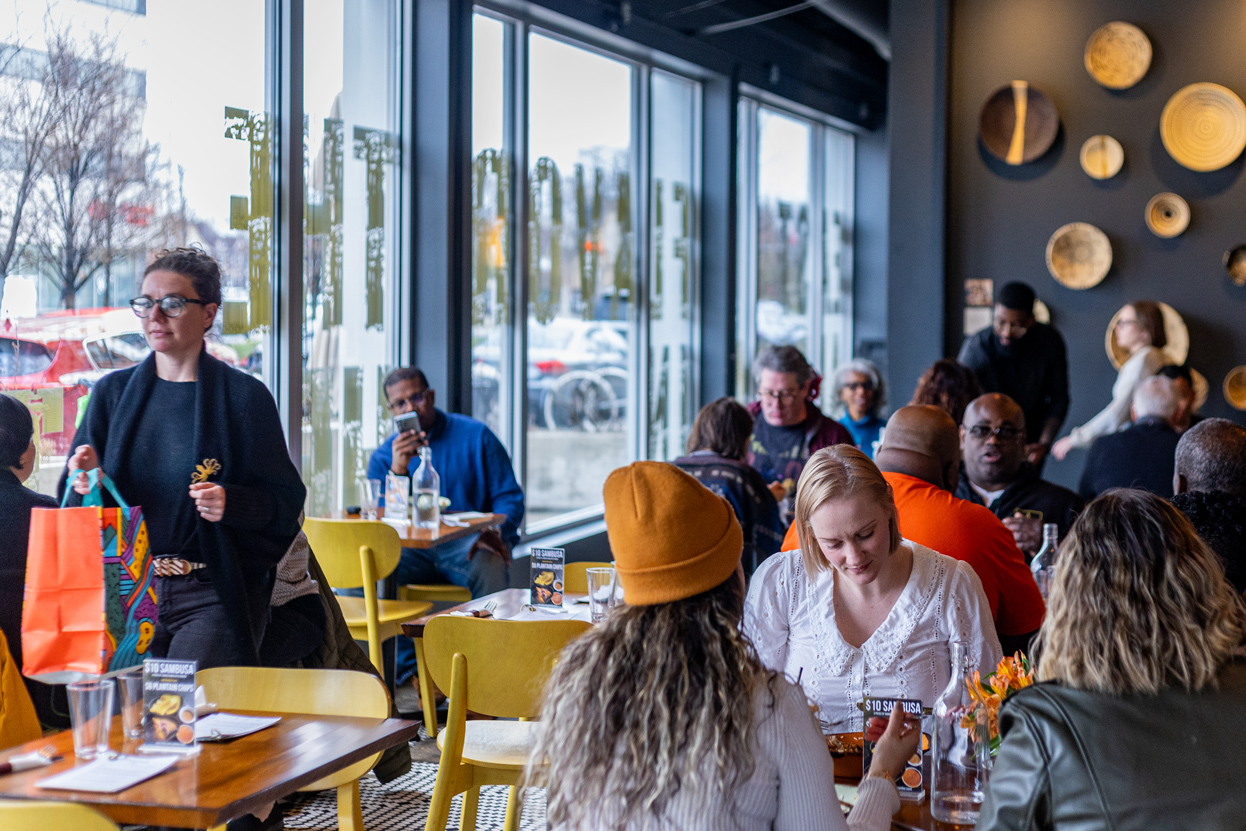
Located within the 1896-built, three-story commercial strip that was redeveloped in 2017 when Midtown Detroit Inc. purchased the historic structure, Baobab Fare is a 65-seat restaurant space with a dedicated retail section inspired by African and Detroit design. The couple worked with the local architecture and design firm based in Detroit, ROSSETTI, to re-envision the interiors. Mamba noted as storytellers, it was important that the space embodied the spirit of the restaurant, “Detroit Ni Nyumbani” or “Detroit is Home.” Deep charcoal hues are juxtaposed with vibrant color, organic and natural textures, and historic elements of the original structure remain so that it feels inherently part of the Detroit fabric.
“We are storytellers, right? Not only of our story, where we came from, but also Detroit’s story. You see the ambiance is bright colors. Everybody in Africa, in Burundi, wears these very bright fabrics, and we wanted to have that bright color,” Mamba said. “When we found this building, the ceiling and floor were here, this is a historical building, so we didn’t want to change that. I think that is the touch of Detroit, you know, we didn’t want to touch the ceiling, we didn’t want to touch the floor. We wanted to share it, so I think that mixture of our adopted country and where we came from is very important to tell and to show who we are.”
Since its launch, Baobab Fare has been recognized three times as a semi-finalist and, this year, also as a nominee for the James Beard Foundation Awards. Mamba has also participated in and won the Food Network’s “Chopped”—donating the $10,000 in prize money to Freedom House Detroit and Burundi Kids—and established Soko, an East African Market that uplifts East African culture through products like Burundi coffee, working to partner directly with growers; Ji Passion Fruit Juice; PILI Burundi Hot Sauce; candy and chocolate, partnering with Dwaar Chocolate to manufacture Soko-branded chocolate bars using Tanzanian-sourced cacao; and handcrafted jewelry from East African artists. The couple also launched Waka by Baobab Fare, a food truck and catering service, which pays homage to the restaurant’s original start as a street pop-up and has since found a new brick-and-mortar home in Eastern Market, and announced that Baobab Fare is officially expanding to a second location.
“We started on the street doing different pop-ups and people starting missing us on the street. Last year, we opened this other concept as a food truck, African street food. This concept will also have a home at Eastern Market around October of this year and then the second location for Baobab Fare on the east side of Detroit will open next year,” Mamba said. “So, we are working on two more restaurants and we import coffee from Burundi, which we roast here; we have cacao from Tanzania and Congo and make our own chocolate; and we have passion fruit drinks.”
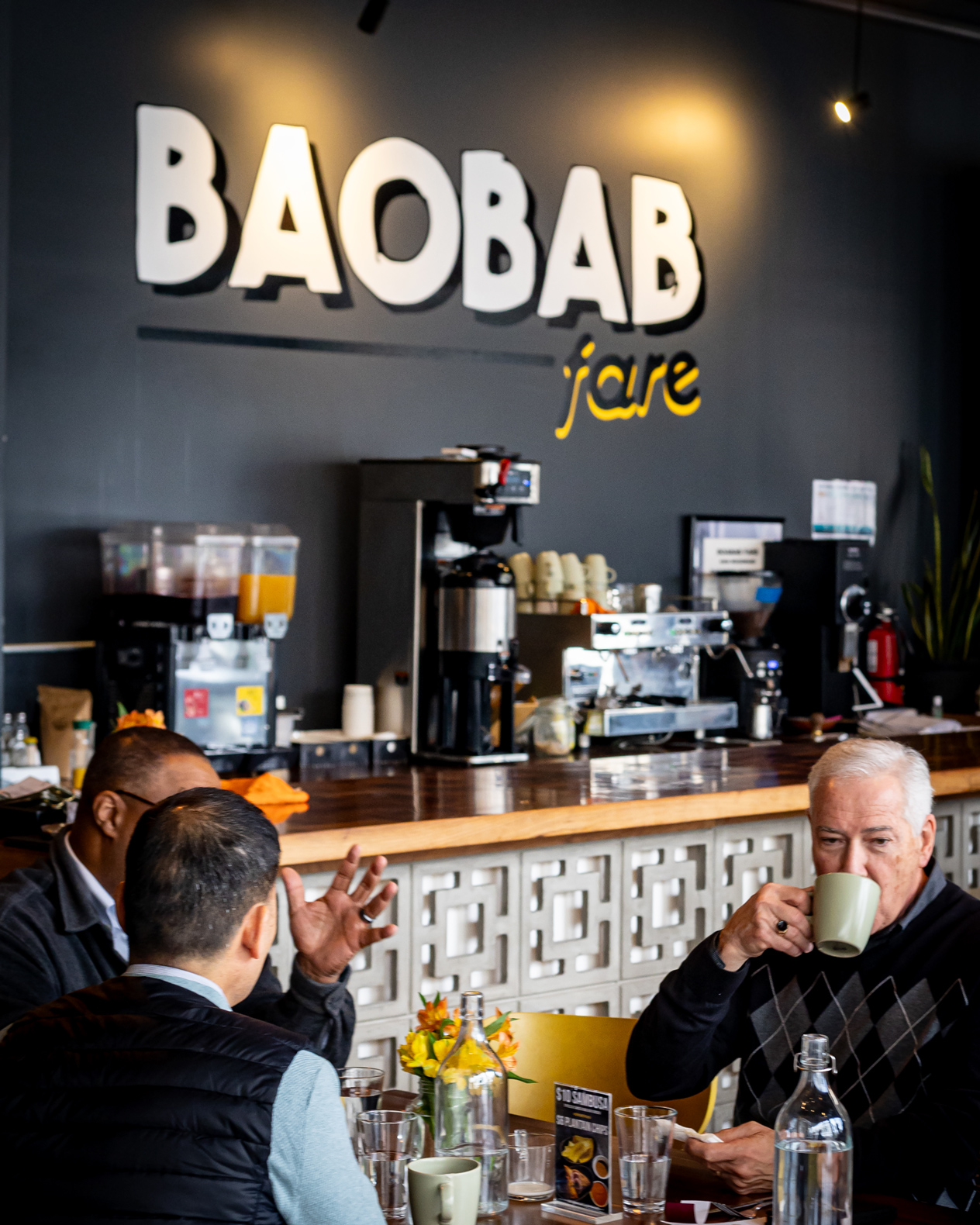
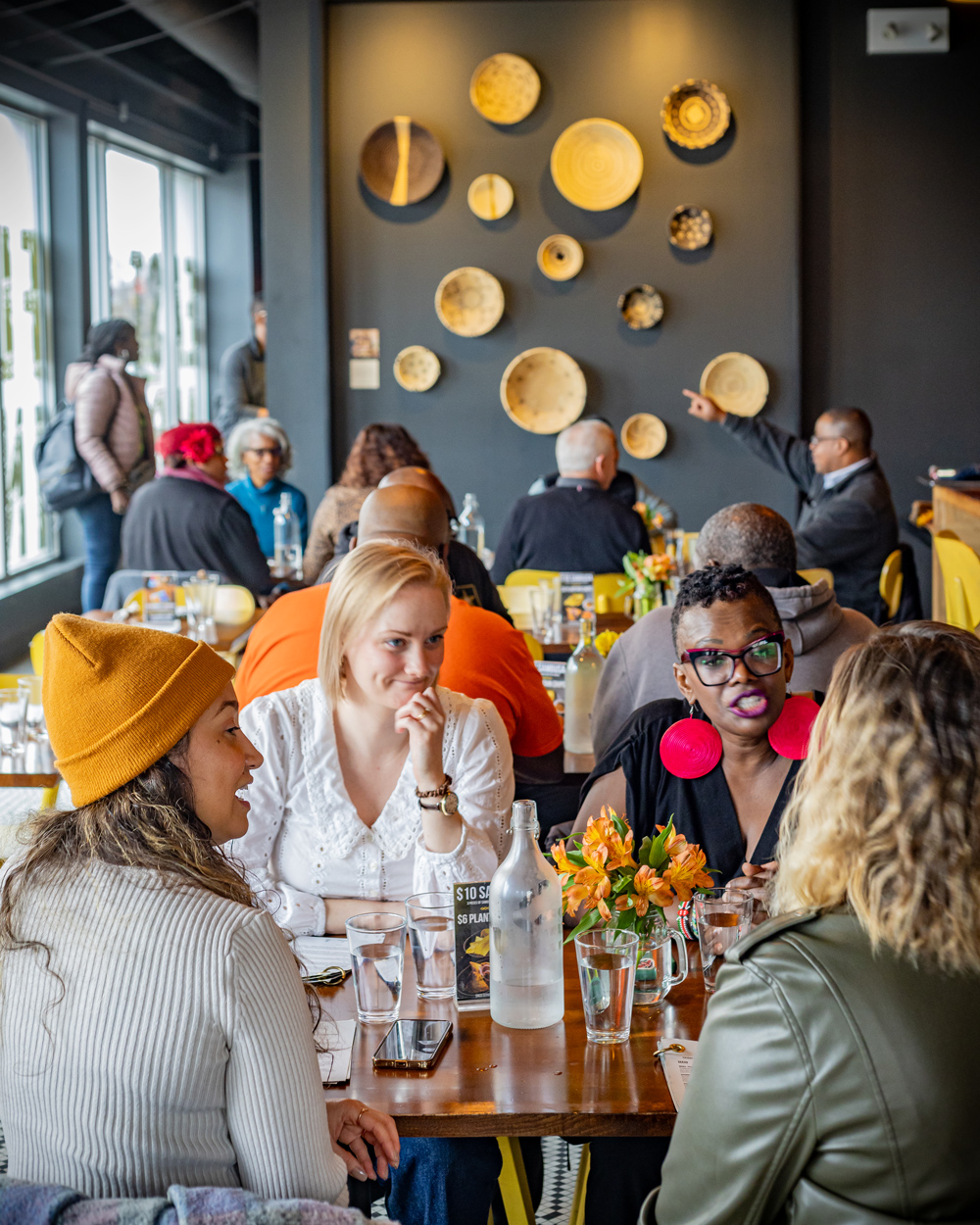
Baobab Fare’s second location, a 3,000-square-foot former retail space at E. Warren Avenue, will approximately double the size of the original location and feature a similar design and ambiance. Mamba noted the building itself has history in the area and the intention is to transform it into something the people in the community will be proud of, that it will become a place for gathering and of comfort, while ensuring the look and feel is the same in which the simple, everyday meal is celebrated.
“My mom owned a small restaurant and then she would cook for people who would work in the market, so in the morning she would make food and then we would deliver it to the market. It is simple ingredients, simple foods: rice, beans, chicken or Kuku, which is a marinated chicken with mustard and onion—that is an everyday meal. That is something we wanted to share. We didn’t want to complicate things, we wanted to have the food that we grew up eating,” Mamba said.
“People, even our friends, are surprised that we, my family, eat at Baobab Fare every day. They’ll be like, we never saw someone own a restaurant, at their restaurant every day, and it’s like, this is the food that we grew up eating. This is the food that if you go to Burundi, it’s that authenticity, and that is what we wanted, and we felt like the community, the people in Detroit, wanted. They wanted to have a prepped, home-cooked meal that they can have access to every day. Baobab Fare is that. It is that simplicity. It is the food that we can eat every day,” Mamba added.
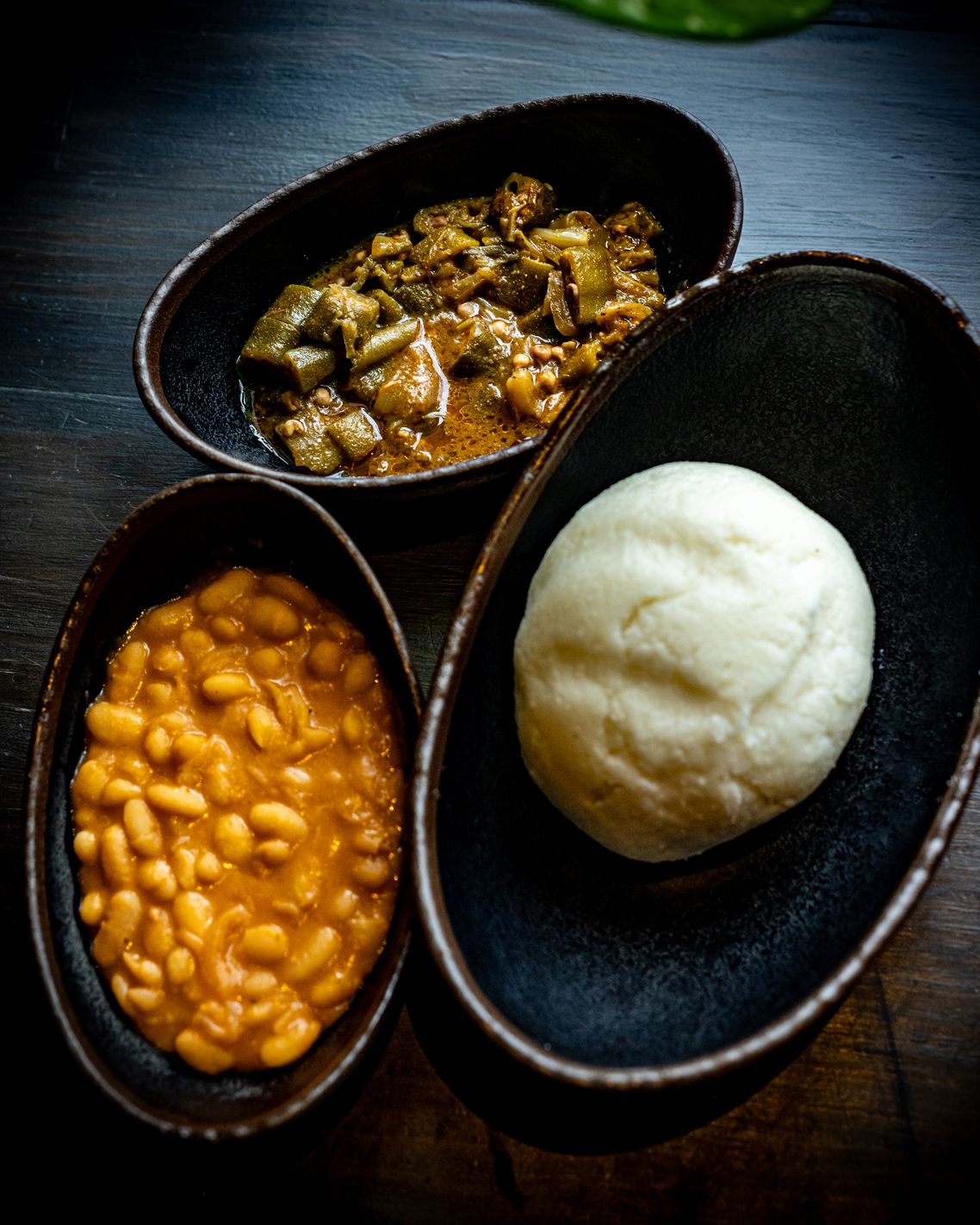
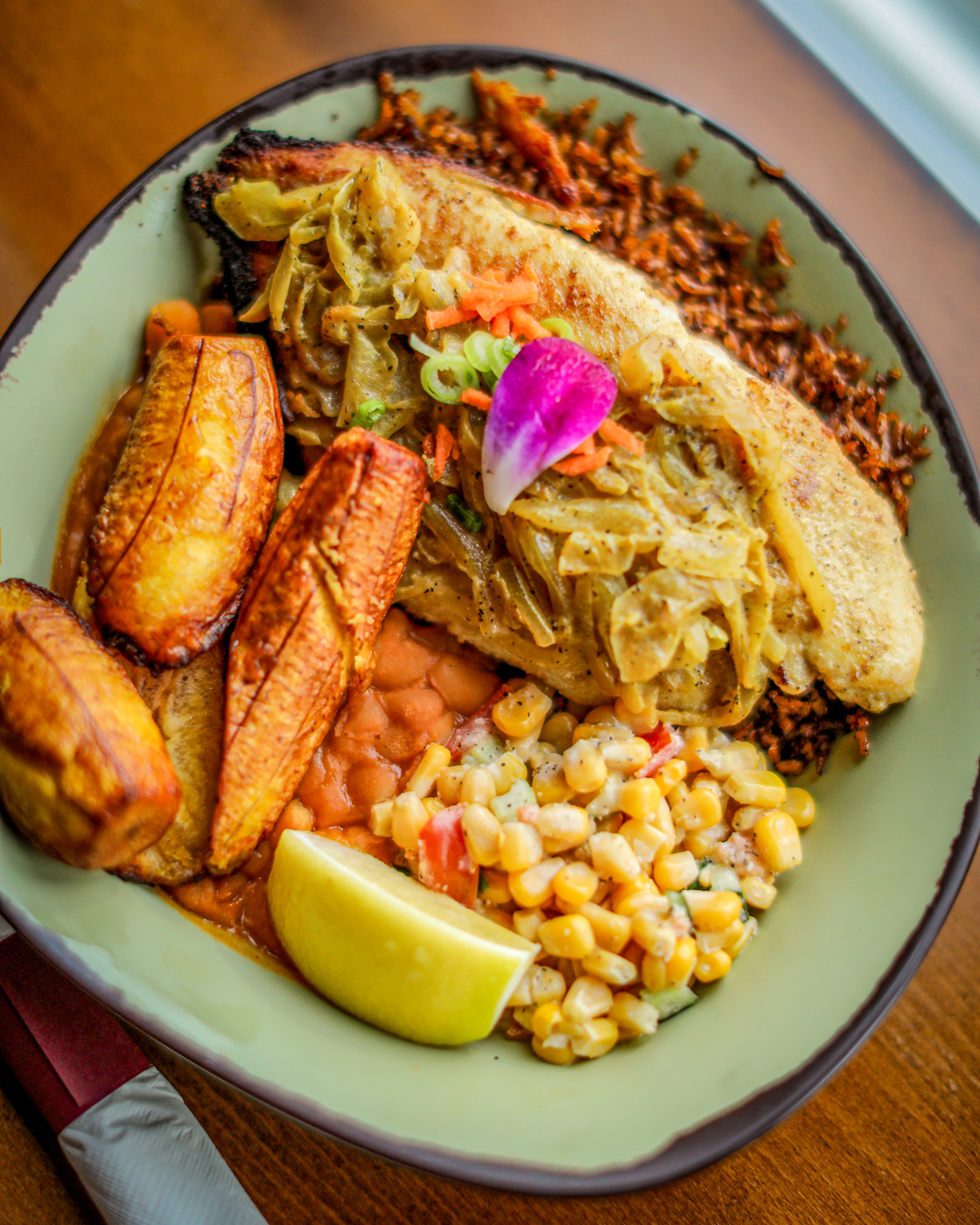
For both Baobab Fare locations, its menu features iconic dishes like the Burundian staple known as Mbuzi or slow-roasted goat; Kuku, a pan-fried chicken in a mustard-onion sauce; and Kumuhana, a marinated and grill-roasted chicken with onion, garlic, and lemon served with fresh corn salad. There are also desserts like Tamu, a sweet pudding made from avocados and passion fruit, garnished with chia seeds; hibiscus teas and Burundian coffee; and signature sides like fried plantains, stewed yellow beans, peanut-stewed spinach, spiced rice pilau, and coconut rice. Mamba noted that even though some of the dishes might be considered humble, the very act of sharing it has an ability to move people on a personal level, and has really resonated in the community. It is about the stories, the conversations, and the memories that the food, the chocolate, the coffee, and the jewelry at Baobab Fare, Soko, and Waka carry and continue to tell.
“This country is divided, because people are afraid to travel, they are afraid to tell their stories. They don’t want to be judged. When we came into this country, we didn’t have family here so I had to speak the language and what I could control was to tell our story. If people are nice to us, that is alright, and if people decided to not be nice to us, that is alright, but the experience that we have seen is that every time we try to open up to other people, they try to understand and empathize. That is why it is very important to not only share the food, but tell where the food is coming from, how the food has been made. You can come to Baobab Fare, eat the food, hear the stories, and travel without leaving Detroit. This is our goal, and this is the hope that we have, that we are going to help end the division,” Mamba said.
“For me, art is being real, giving from the bottom of your heart to people and showing people what you think, so the design is very important. Like the baskets that we are going to be using at the second location are handmade. These baskets are handmade from Rwanda and we are working with a women’s collective, women who have wisdom from genocide, who are making these baskets. They are sharing their stories through this basket. For me, that is art. It is sharing something that you cannot describe, sometimes you cannot talk about it, but you can share from art,” Mamba added.
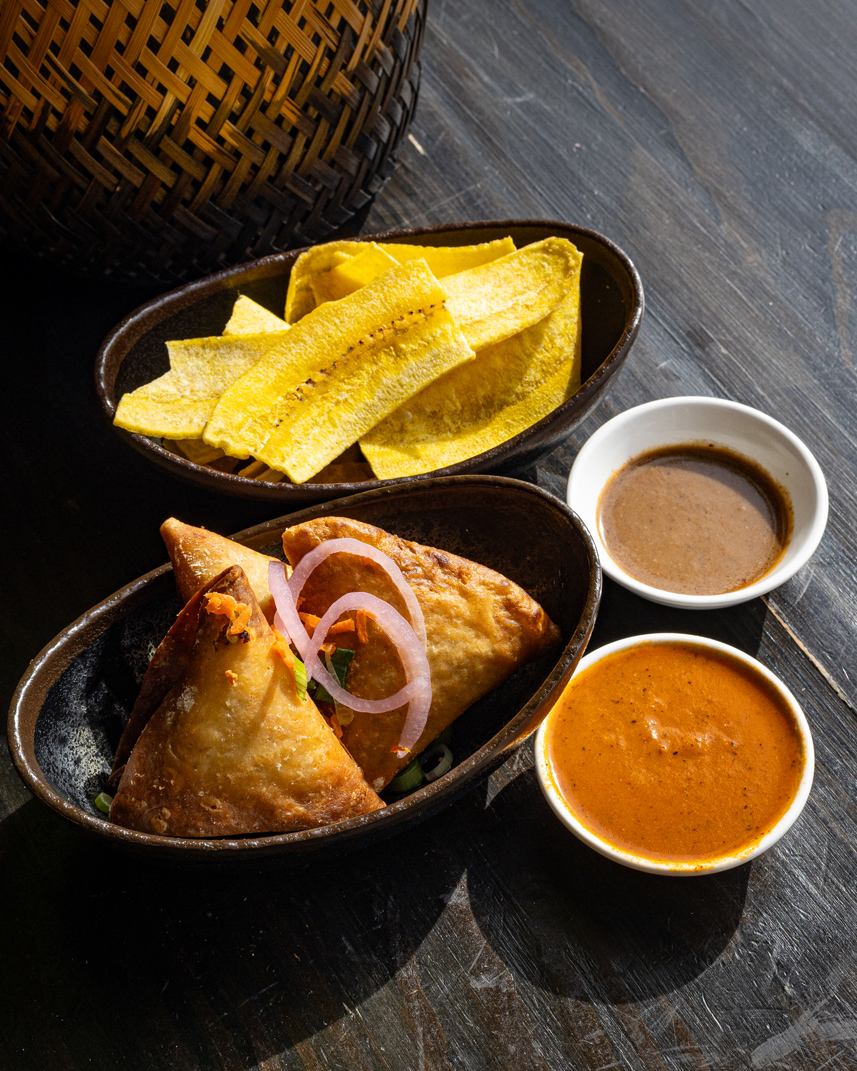
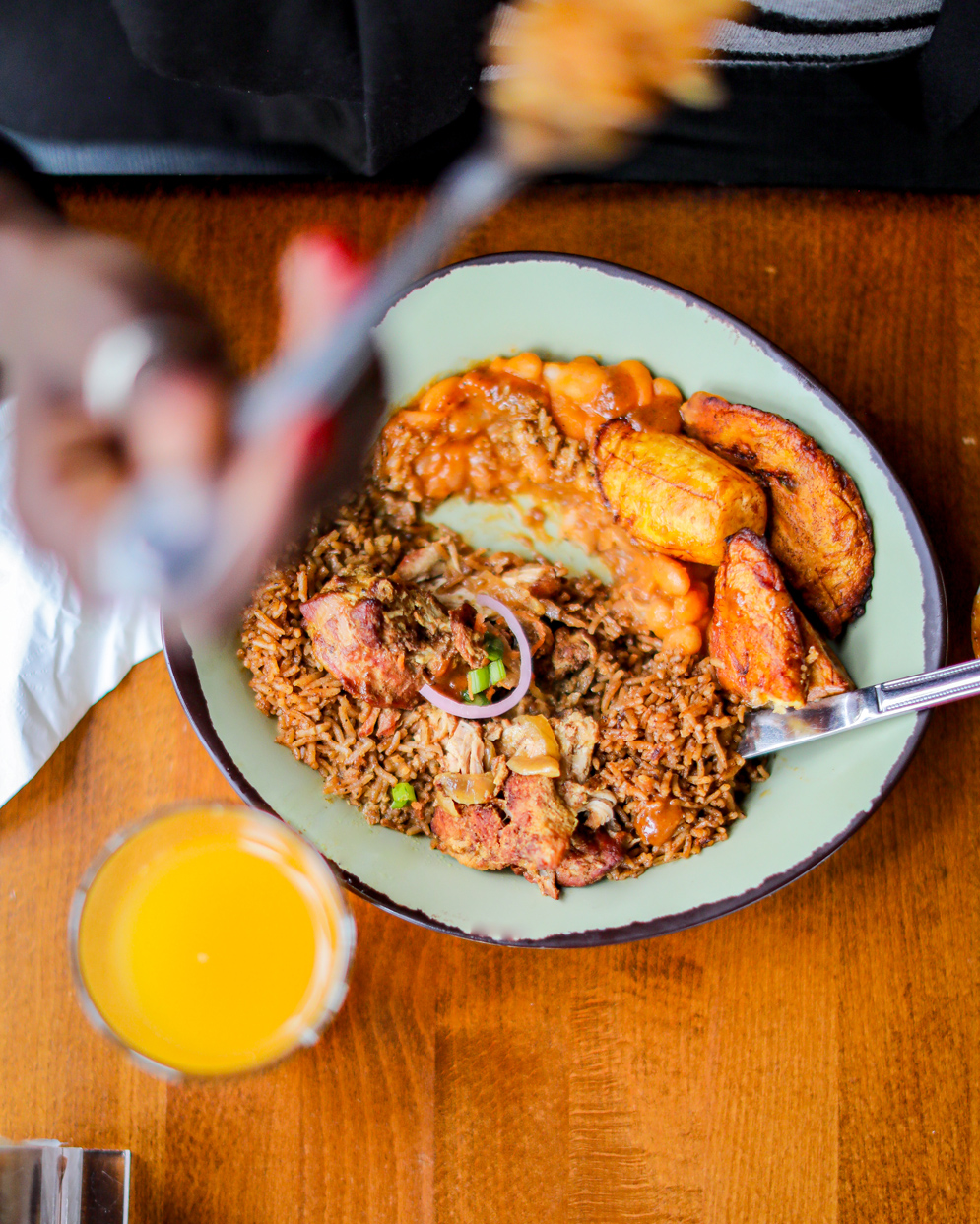
Text: R.J. Weick
Photography: Courtesy of Baobab Fare
First published in Great Lakes By Design: Crafted Lodging, Volume 8, Issue 3

